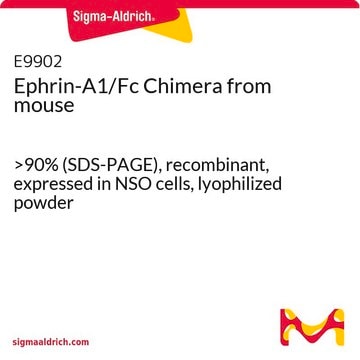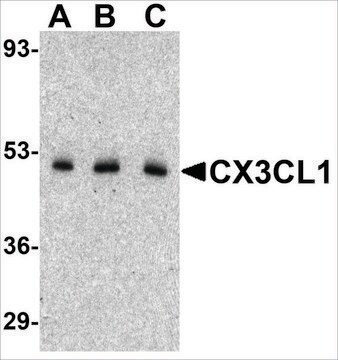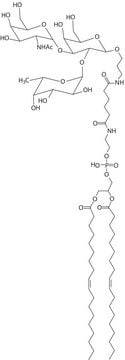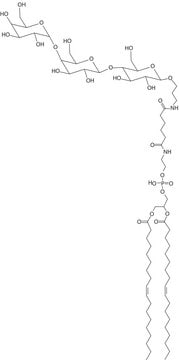F2302
Fractalkine Peptide
>97% (SDS-PAGE), lyophilized powder, mouse recombinant, expressed in E. coli
Synonym(s):
CX3CL-1, Neurotactin
About This Item
Recommended Products
product name
Fractalkine, Chemokine Domain from mouse, >97% (SDS-PAGE), recombinant, expressed in E. coli, lyophilized powder
biological source
mouse
Quality Level
recombinant
expressed in E. coli
Assay
>97% (SDS-PAGE)
form
lyophilized powder
potency
0.3-3 μg/mL
mol wt
calculated mol wt ~9.5 kDa
packaging
pkg of 25 μg
storage condition
avoid repeated freeze/thaw cycles
impurities
endotoxin, tested
UniProt accession no.
storage temp.
−20°C
Gene Information
mouse ... Cx3cl1(20312)
General description
Biochem/physiol Actions
Physical form
Analysis Note
Signal Word
Danger
Hazard Statements
Precautionary Statements
Hazard Classifications
Eye Dam. 1 - Skin Irrit. 2
Storage Class Code
11 - Combustible Solids
WGK
WGK 3
Flash Point(F)
Not applicable
Flash Point(C)
Not applicable
Certificates of Analysis (COA)
Search for Certificates of Analysis (COA) by entering the products Lot/Batch Number. Lot and Batch Numbers can be found on a product’s label following the words ‘Lot’ or ‘Batch’.
Already Own This Product?
Find documentation for the products that you have recently purchased in the Document Library.
Our team of scientists has experience in all areas of research including Life Science, Material Science, Chemical Synthesis, Chromatography, Analytical and many others.
Contact Technical Service









